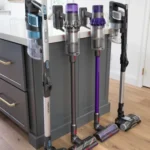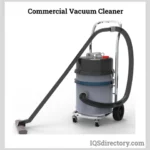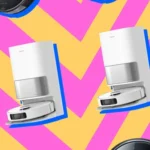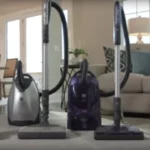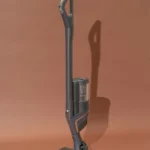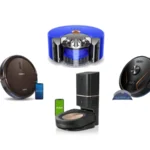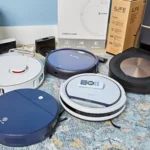Picture this: you just bought a smart vacuum cleaner, and you’re ready to put it to good use. Suddenly, you come to a realization – you have to choose between washable and disposable filters. You scratch your head, wondering which one is better for your needs. The decision may seem overwhelming, but don’t fret – we’re here to help. In this article, we’ll delve into the differences between washable and disposable filters for smart vacuums, weighing the pros and cons of each option. So, put your worries aside and keep reading to discover everything you need to know to make an informed decision.
Benefits of Washable Filters
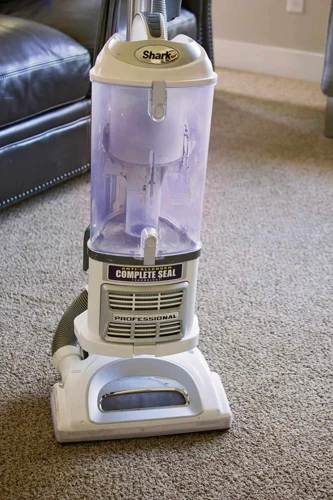
When it comes to maintaining your smart vacuum cleaner, one of the most important factors to consider is the type of filter you use. While there are many options on the market, washable filters are a popular choice for a variety of reasons. Not only are they cost-effective and eco-friendly, but they also come with a range of benefits that make them an appealing choice for many homeowners. In this section, we will take a closer look at the benefits of washable filters and why they may be the right choice for your smart vacuum cleaner. For more information on smart vacuum cleaner filters, check out our guide.
Cost-effective and Eco-friendly
One benefit of washable filters for smart vacuum cleaners is that they are cost-effective and eco-friendly. Unlike disposable filters, washable filters can be reused multiple times, eliminating the need for frequent replacements. This not only saves money in the long run but is also a more sustainable option for the environment.
Washable filters can also help reduce waste accumulation in landfills. Since they do not need to be frequently replaced, there is less overall plastic waste as well. In fact, according to a study by the Environmental Protection Agency (EPA), one of the biggest contributors to landfills is discarded packaging and containers – a category that includes disposable vacuum cleaner filters.
Not only are washable filters better for the environment, but they can also save you money in the long run. The initial investment may be slightly more than disposable filters, but over time, the cost of replacing disposable filters adds up. With washable filters, however, there is no need to purchase replacement filters. Instead, you can simply wash and reuse the same filter multiple times, which can significantly cut down on costs over time.
Choosing washable filters for your smart vacuum cleaner is a great way to save money and reduce waste. With proper maintenance and cleaning, washable filters can provide a cost-effective and eco-friendly solution for your vacuum cleaning needs. For more tips on smart vacuum filter replacement and maintenance, check out our comprehensive guide here.
No Need for Replacement Parts
One of the biggest benefits of washable filters for smart vacuum cleaners is that they do not require any replacement parts. This can save you money in the long run, as you won’t need to constantly purchase new filters. Instead, you can simply wash and reuse the same filter multiple times.
This is particularly convenient for those who use their smart vacuum cleaner frequently. With disposable filters, you may find yourself frequently running out of replacement parts and needing to order more. This can be frustrating and time-consuming, especially if you don’t have a spare filter on hand when you need it.
Additionally, because washable filters don’t require replacement parts, they’re also more environmentally friendly. Disposable filters contribute to unnecessary waste and pollution, but washable filters can be used multiple times and then easily recycled when they are no longer effective.
So, if you’re looking to reduce your impact on the environment and save money in the long run, a washable filter for your smart vacuum cleaner is definitely worth considering. Of course, it’s important to keep in mind that they do require regular maintenance to keep them functioning effectively – but this is a small price to pay for the benefits they provide.
If you’re not sure how to properly clean and maintain your washable filter, there are plenty of resources available online to help you get started. You can find step-by-step guides and video tutorials on websites dedicated to smart home technology and home cleaning. Some helpful topics to search for might include “How to Clean and Maintain Filters for Your Smart Vacuum“, “Smart Vacuum Filter Tips“, and “Smart Vacuum Filter Upgrade Options“. By taking the time to do some research, you can ensure that your washable filter stays in good condition for years to come.
Long-lasting
Washable filters for smart vacuum cleaners are a popular choice among homeowners because of their long-lasting nature. These filters are designed to be washed and reused multiple times, making them an ideal choice for those who want to reduce waste and save money on replacement filters.
Here are some reasons why washable filters are long-lasting:
| Reasons | Explanation |
|---|---|
| Durable Material | Washable filters are made from high-quality materials that are designed to withstand wear and tear. These filters can last for years if properly maintained. |
| Reusable | Unlike disposable filters that need to be replaced frequently, washable filters can be washed and reused several times. This makes them a cost-effective and eco-friendly choice for homeowners. |
| Easy Maintenance | Washable filters are easy to clean and maintain. They can be washed by hand or in a washing machine, depending on the manufacturer’s instructions. |
Washable filters are a great choice for homeowners who want a long-lasting and cost-effective option for their smart vacuum cleaner. However, it’s important to note that these filters still require regular maintenance and may eventually need to be replaced. To learn more about smart vacuum filter replacement, check out our article on common mistakes when replacing filters for smart vacuums. It’s important to understand the frequency of smart vacuum filter replacement to ensure that your vacuum is operating properly.
Drawbacks of Washable Filters
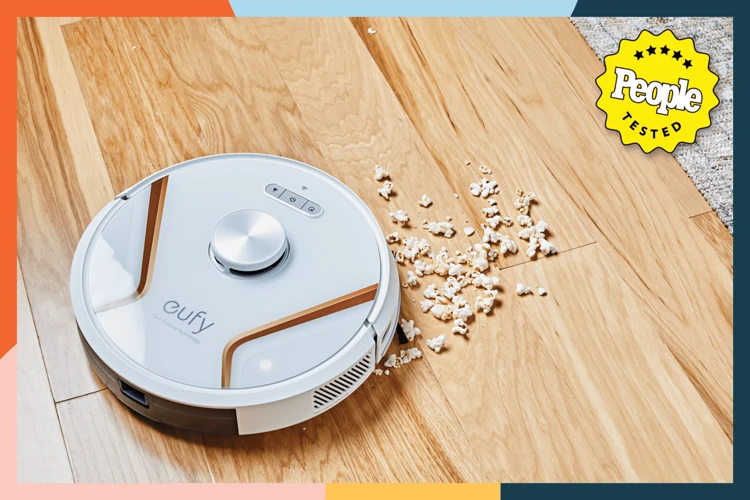
Without a doubt, washable filters are an excellent choice for smart vacuum cleaners. They are cost-effective, eco-friendly, and long-lasting. However, they also come with some downsides that you need to consider before making a final decision. It’s essential to be aware of the potential drawbacks of washable filters to avoid common mistakes, such as replacing them too frequently, before they become inconvenient and expensive problems. Let’s explore what they are.
Time-consuming Maintenance
Using washable filters for your smart vacuum cleaner may come with the drawback of time-consuming maintenance. Unlike disposable filters that could be easily tossed after use, washable filters need to be cleaned before reuse.
Regular maintenance is essential for the longevity and performance of washable filters. Depending on the frequency of use, they need to be cleaned at least once a month. However, if the filters become clogged due to heavy use, they may need to be cleaned more often.
Cleaning washable filters involves several steps. First, you need to take apart the filter and remove any large debris or dirt by hand. Then, rinse the filter under running water to get rid of any smaller particles. It is worth noting that some washable filters may require a specific cleaning solution, and you should check the manufacturer’s instructions beforehand.
After washing, you have to let the filter air dry completely before reinstalling it into your smart vacuum cleaner. Depending on the filter’s size and material, this could take a few hours, which could be inconvenient if you need to use your smart vacuum cleaner urgently.
Proper maintenance and cleaning of washable filters is crucial to avoid damaging them and preventing any decrease in performance. However, if you feel like you don’t have the time or patience for regular maintenance, you may want to consider using disposable filters.
In the next section, we will discuss the benefits of disposable filters, which, according to some smart vacuum filter replacement frequency experts, may be more suitable for some households.
May Require Additional Cleaning Tools
When it comes to washable filters for smart vacuum cleaners, one of the drawbacks is that they may require additional cleaning tools for maintenance. This is because washable filters need to be thoroughly cleaned to maintain their effectiveness and prolong their lifespan. In some cases, a simple rinse with water may not be enough to remove all the dirt and debris embedded in the filter.
To clean washable filters, it may be necessary to use specific cleaning tools such as a soft-bristled brush, a vacuum cleaner, or even a specialized filter-cleaning solution. Using these tools helps to ensure that all dirt and debris is thoroughly removed from the filter, allowing it to function properly.
However, the additional cleaning tools required for washable filters can be seen as a hassle to some users. It may also add extra time and effort to their cleaning routine, which can be especially inconvenient for busy individuals.
Regardless of these potential drawbacks, washable filters are still a popular choice for smart vacuum cleaners. When properly maintained, they offer several benefits, including cost-effectiveness, eco-friendliness, and long-lasting use. It’s important to know the proper cleaning techniques for washable filters to ensure that they remain effective.
To learn more about common mistakes people make when replacing filters for smart vacuums, check out our article on common mistakes when replacing smart vacuum filters.
May Not Be as Effective at Capturing Fine Particles
One potential drawback of washable filters for smart vacuum cleaners is that they may not be as effective as disposable filters when it comes to capturing fine particles, such as dust mites, pet dander, and other allergens. This is because washable filters, over time, may become clogged with debris and lose their ability to filter out these small particles effectively.
This issue can be particularly problematic for individuals with allergies or respiratory issues who require a high level of air filtration from their smart vacuum cleaner.
To mitigate this issue, it’s important to regularly clean washable filters, typically after every use or every few uses, to prevent buildup and ensure that they continue to function optimally. Additionally, some washable filters may require more frequent replacement, depending on their quality.
If capturing fine particles is a major concern for you, disposable filters may be a better choice for your smart vacuum cleaner. Disposable filters are typically made from synthetic materials that are finer and more efficient at trapping small particles. They’re also designed to be replaced regularly, ensuring that they always function at optimal levels.
However, it’s important to keep in mind the environmental impact and cost-effectiveness of disposable filters. They can be more expensive over time, and their disposal can contribute to landfill waste. It’s essential to consider all factors and make a choice that is best for your specific needs and circumstances.
Benefits of Disposable Filters

When it comes to smart vacuum cleaners, there are two main types of filters to consider: disposable and washable. While washable filters offer a range of benefits, disposable filters also have their advantages. In this section, we will explore the benefits of disposable filters and why they may be the right choice for you. From convenience and low-maintenance to the ability to capture fine particles, disposable filters have a lot to offer homeowners looking to keep their home clean and tidy.
Convenient and Low-Maintenance
If you’re looking for a filter option for your smart vacuum cleaner that’s hassle-free and low-maintenance, then a disposable filter may be the right choice for you. Disposable filters are incredibly convenient and require minimal upkeep.
One of the biggest advantages of disposable filters is that they can simply be replaced when they become too dirty or clogged. This means that there’s no need to wash them or wait for them to dry before using them again. Instead, you can quickly swap out the old filter for a new one and get back to cleaning.
Disposable filters are also very low-maintenance since they don’t require any special cleaning tools or techniques. Because they’re designed to be thrown away after use, you don’t need to worry about spending time or effort on maintaining them.
To give you a better idea of the convenience of disposable filters, here’s a quick comparison chart:
| Feature | Washable Filters | Disposable Filters |
|---|---|---|
| Need for Replacement | None | Regularly, but easy to replace |
| Maintenance | Regular cleaning required | None required |
| Cleaning Tools | May require additional tools | No additional tools needed |
As you can see, disposable filters offer a level of convenience and low-maintenance that washable filters simply can’t match. So, if you’re someone who wants to spend less time cleaning and more time enjoying your clean floors, a disposable filter may be the right choice for you.
Often More Effective at Capturing Fine Particles
Disposable filters are often more effective at capturing fine particles such as dust, pollen, and pet dander. The reason for this is that disposable filters are made up of a dense material that traps even the smallest particles.
Here are some reasons why disposable filters are better at capturing fine particles:
- The material used in disposable filters is often made up of tightly woven fibers that can trap particles that might pass through washable filters.
- Disposable filters are designed to catch even the tiniest particles, meaning that they are better suited for people who suffer from allergies or have pets in the home.
- Unlike washable filters, disposable filters don’t break down over time, meaning that they are less likely to lose their effectiveness over time.
That said, disposable filters do have their downside. As we mentioned earlier, they come at a higher cost over time and are less eco-friendly than washable filters. However, if capturing fine particles is your top priority, a disposable filter may be the way to go. Just be sure to consider your budget and environmental impact before making your decision.
No Need for Cleaning Tools
One of the benefits of using disposable filters for smart vacuum cleaners is that they eliminate the need for cleaning tools. When using washable filters, users often need to take the filter out of the vacuum cleaner and clean it thoroughly, which can be time-consuming and require additional cleaning tools. However, with disposable filters, users can simply remove the old filter and replace it with a new one.
In contrast to washable filters, disposable filters do not require any cleaning tools for maintenance. This makes disposable filters a convenient option for those who are busy or do not want to spend a lot of time maintaining their vacuum cleaner. Additionally, using disposable filters can help ensure that the vacuum cleaner is always functioning at its best, as new filters will capture more dust and debris than old, clogged filters.
To illustrate the convenience of disposable filters, we can compare the maintenance requirements of washable filters versus disposable filters in a table:
| Filter Type | Maintenance Requirements | Tools Required |
|---|---|---|
| Washable | Regular cleaning required | Cleaning brush and/or water |
| Disposable | No cleaning required | None |
As the table shows, washable filters require regular cleaning, which can be time-consuming and require additional tools such as a cleaning brush and/or water. Disposable filters, on the other hand, require no additional tools or cleaning, making them a more convenient option for those who want a low-maintenance vacuum cleaning experience.
If you value convenience and want to save time on maintenance, disposable filters may be the best option for your smart vacuum cleaner. While they may be more expensive over time than washable filters, their convenience and effectiveness in capturing fine particles make them a worthwhile investment.
Drawbacks of Disposable Filters
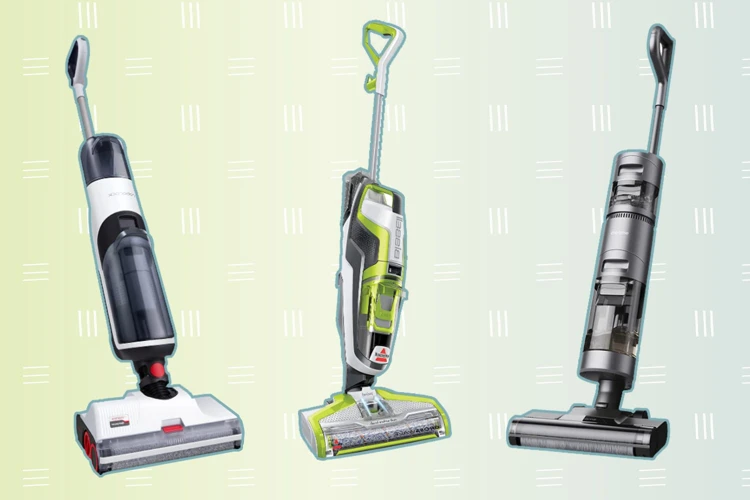
While disposable filters for smart vacuum cleaners come with their own set of benefits, they are not without their disadvantages. Users may want to carefully consider the downsides before choosing to invest in disposable filters on a regular basis. Let’s take a closer look at what some of these downsides are and the impact they may have on your cleaning routine and budget.
Expensive Over Time
When it comes to disposable filters for smart vacuum cleaners, one major drawback is the cost. Over time, the expense of purchasing new filters can add up. While disposable filters are convenient and low-maintenance, their cost can be a significant factor to consider.
Let’s take a closer look at the cost comparison between washable and disposable filters.
Disposable filters:
| Type of filter | Price (average) | Frequency of replacement | Cost per year (based on replacement every 3 months) |
|---|---|---|---|
| Standard | $10 | 4 times per year | $40 |
| High-efficiency particulate air (HEPA) | $20 | 2 times per year | $40 |
| Activated carbon | $15 | 2 times per year | $30 |
As we can see from the table above, replacing disposable filters every few months can be quite costly. The cost of replacement can add up to a considerable amount if you factor in the lifespan of the vacuum cleaner.
On the other hand, washable filters have a higher upfront cost compared to disposable filters. However, they can last for years with proper maintenance and cleaning. This can be a significant cost-saving factor in the long run.
Washable filters:
| Type of filter | Price (average) | Frequency of replacement | Estimated lifespan (with proper maintenance) | Cost per year (based on lifespan of 3 years) |
|---|---|---|---|---|
| Standard | $15 | N/A | 3 years | $5 |
| HEPA | $25 | N/A | 3 years | $8.33 |
While washable filters require some maintenance and occasional replacement of filter components like foam or charcoal, the overall cost is lower over time than disposable filters. Of course, the initial investment may be more significant, but you can recoup those costs over time.
If you’re looking for a more cost-effective option, then washable filters may be the right choice for you. However, if you prioritize convenience over cost, then disposable filters can be a better option.
Less Eco-friendly
When it comes to choosing between washable and disposable filters for your smart vacuum cleaner, one important factor to consider is the environmental impact. Disposable filters may be a more convenient option, but they come with a significant drawback – they are less eco-friendly than washable filters.
Let’s take a closer look at why disposable filters may not be the best choice for the environment.
First and foremost, disposable filters are designed to be thrown away after use, which means they contribute to the already growing amount of waste in landfills. This can have a significant impact on the environment, as disposable filters can take years to decompose and release harmful chemicals and greenhouse gases into the atmosphere in the process.
In addition to the environmental impact of creating more waste, disposable filters also require additional resources to produce. The manufacturing of disposable filters requires the use of energy, water, and other materials, which can have a negative impact on the environment. Compared to washable filters, which can be used multiple times without needing to be replaced, disposable filters increase the amount of resources needed to maintain your vacuum cleaner.
Lastly, the production and transportation of disposable filters also contribute to increased carbon emissions. As these filters typically need to be replaced more frequently than washable ones, this adds up over time and can have a significant impact on the environment.
While disposable filters may be more convenient for your smart vacuum cleaner, they are less eco-friendly when compared to washable filters. If you want to make a more environmentally conscious choice, washable filters may be the way to go. Not only can they be used multiple times, but they also do not contribute to the increasing amount of waste in landfills, require fewer resources to produce, and have a lower carbon footprint overall.
May Wear Out More Quickly
Disposable filters, despite being convenient and low-maintenance, may have a shorter lifespan than washable filters. This is mainly because they are made of delicate materials that tend to wear out more quickly. Frequent use and lack of proper maintenance can also contribute to their premature deterioration. Unlike washable filters that can last for months or even years, disposable filters may need to be replaced frequently depending on usage. This means that the cost of replacing disposable filters can add up quickly, making them an expensive option over time.
Disposable filters, just like washable filters, can easily become clogged and lead to a decline in suction power. When this happens, it may be necessary to replace the disposable filter, which can be a hassle and add to the overall cost of using the vacuum cleaner. However, disposable filters are relatively cheap and easy to find, and you can stock up on them if you want to avoid frequent trips to the store.
When choosing between washable and disposable filters, it’s essential to consider your cleaning needs, environmental impact, and budget. While disposable filters have the advantage of convenience, washable filters can be a better option in terms of long-term cost savings and eco-friendliness. However, if you don’t have the time or energy to clean and maintain washable filters properly, disposable filters can be a good alternative. Ultimately, the choice between these two types of filters comes down to personal preference and the specific requirements of your cleaning routine.
Factors to Consider When Choosing a Filter
As you weigh the pros and cons of washable and disposable filters, there are several important factors to consider before making your final decision. Your choice ultimately depends on your unique needs and circumstances. By assessing your budget, environmental impact, and cleaning needs, you will be able to make an informed choice that suits you and your home. Let’s take a closer look at these factors to consider.
Budget
When it comes to choosing between washable and disposable filters for your smart vacuum cleaner, one of the most important factors to consider is your budget. Both types of filters have different costs associated with them, both in the short-term and over the long-term.
Short-term costs:
Disposable filters typically have a lower upfront cost since you only need to purchase them once, whereas washable filters often have a higher initial cost. However, it’s important to consider that disposable filters need to be replaced more frequently, which means ongoing expenses.
Long-term costs:
Over time, washable filters can be more cost-effective than disposable ones. While there may be a higher initial cost, you won’t need to purchase replacement filters as frequently. This means you can save money in the long-term with washable filters.
To help you compare the costs associated with washable and disposable filters, here’s a comparison table:
| Washable Filters | Disposable Filters | |
|---|---|---|
| Upfront Cost | Higher | Lower |
| Replacement Cost | Lower | Higher |
| Long-term Cost | Lower | Higher |
Ultimately, when considering your budget, it’s important to weigh the short-term and long-term costs associated with washable and disposable filters. While disposable filters may seem like a more affordable option upfront, ongoing replacement costs can add up quickly. On the other hand, while washable filters may have a higher initial cost, they can be more cost-effective over time.
Environmental Impact
When considering the environmental impact of washable versus disposable filters for smart vacuum cleaners, there are several factors to take into account.
1. Material
Disposable filters are typically made of paper or synthetic materials that do not decompose easily, leading to extra waste in landfills. Washable filters, on the other hand, can be made of materials such as cotton or foam that can biodegrade over time, making them a more environmentally friendly option.
2. Longevity
Washable filters are designed to last a long time with proper maintenance, reducing the need for frequent replacements and disposable filter waste. In contrast, disposable filters have a limited lifespan and will need to be changed frequently, leading to more waste.
3. Reusability
Washable filters can be used repeatedly, making them a more sustainable option than replacing disposable filters each time. Even though washable filters require more cleaning, the ability to reuse them means there are fewer filters that need to be manufactured and disposed of.
4. Manufacturing Process
The manufacturing process of washable filters is generally more sustainable than disposable filters. Disposable filters require production of both the filter and the packaging, leading to more waste and pollution. Washable filters generally have less packaging and can be produced in a more environmentally friendly way.
It’s important to consider the environmental impact of our daily choices, and filtering our smart vacuums is no exception. When deciding between a washable or disposable filter, considering the environmental impact of the filter material, longevity, reusability, and manufacturing process can help make a more informed and eco-friendly decision.
Cleaning Needs
When choosing a filter for a smart vacuum cleaner, cleaning needs play an important role. Everyone has different cleaning needs, so the filter you choose should be based on your specific needs. Here are a few things to consider when thinking about your cleaning needs:
- Frequency of use: If you use your smart vacuum cleaner frequently, you may prefer a washable filter that can be cleaned multiple times before needing to be replaced. If you don’t use your vacuum cleaner as often, you can opt for a disposable filter.
- Type of mess: The type of mess you need to clean can also affect your filter choice. If you have pets or allergies, you may need a filter that can capture fine particles like pet dander or pollen. In this case, a disposable filter may be more effective.
- Type of cleaning: The type of cleaning you need to do can also affect your choice of filter. For example, if you use your vacuum cleaner to clean up wet spills, a washable filter may be more suitable as it can be washed and dried multiple times. On the other hand, if you mostly use your vacuum cleaner for general cleaning, a disposable filter may be more practical.
- Time: Lastly, consider how much time you have to devote to cleaning your filter. If you have more time and don’t mind the extra effort, a washable filter may be a better option. However, if you prefer a low-maintenance option, a disposable filter may be more suitable.
When considering your cleaning needs, make sure to take into account all of the factors mentioned above to select a filter that is most appropriate for your specific needs. Remember, the filter you choose can affect the performance of your smart vacuum cleaner, so make sure to choose wisely.
Conclusion
In conclusion, choosing between washable and disposable filters for your smart vacuum cleaner involves weighing several factors. If you are looking for a cost-effective and eco-friendly option, washable filters are a great choice. They do not require replacement parts and are long-lasting, making them a good investment in the long run. However, they do require time-consuming maintenance and may not be as effective as disposable filters at capturing fine particles.
On the other hand, if convenience and low maintenance are important to you, disposable filters may be the way to go. They are often more effective than washable filters at capturing fine particles and do not require any additional cleaning tools. However, they can be expensive over time and less eco-friendly than washable filters.
When making your choice, consider your budget, environmental impact, and cleaning needs. If you are willing to invest some time and effort into cleaning your filters, a washable option may be better suited for you. If you value convenience and are willing to pay a premium for it, a disposable filter may be the way to go.
No matter which option you choose, make sure to follow the manufacturer’s recommendations for cleaning and replacing your filters. This will help ensure that your smart vacuum cleaner is running efficiently and effectively, keeping your home clean and healthy. With the right filter in place, you can enjoy a cleaner, more comfortable living space without breaking the bank or harming the environment.
Frequently Asked Questions
How often should I clean my washable filter?
You should clean your washable filter after every use to maintain its effectiveness.
Can a disposable filter be used more than once?
No, disposable filters are designed for single use only.
Are washable filters suitable for people with allergies?
Yes, washable filters can effectively capture allergens with proper maintenance.
How often do I need to replace a disposable filter?
It depends on how often you use your smart vacuum cleaner, but on average, it is recommended to replace disposable filters every three months.
Can washable filters be washed in a washing machine?
It depends on the manufacturer’s instructions, but most washable filters should be hand-washed to prevent damage.
Are washable filters more cost-effective in the long run?
Yes, since they are reusable and do not require frequent replacement, washable filters can save you money in the long run.
Do disposable filters work better than washable filters?
It depends on the quality of the filters and your cleaning needs. Disposable filters may be more effective at capturing fine particles, but washable filters can also be effective with proper maintenance.
Can I recycle disposable filters?
It depends on the material, but some disposable filters can be recycled. Check with your local recycling center for more information.
Can I use a disposable filter with a washable filter?
No, smart vacuum cleaners are designed to use one type of filter at a time.
Are washable filters better for the environment?
Yes, since they are reusable and do not need frequent replacement, washable filters have a lower impact on the environment compared to disposable filters.

